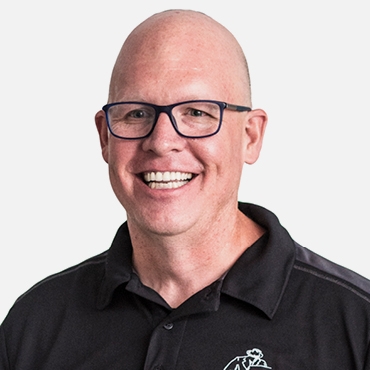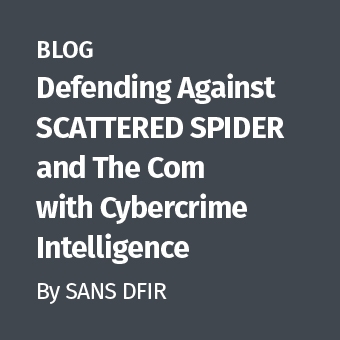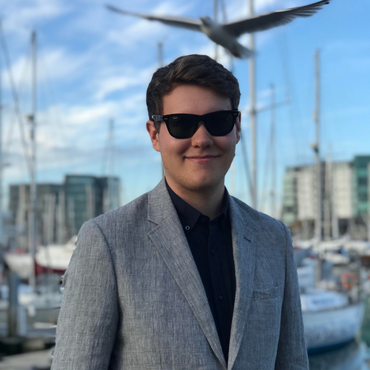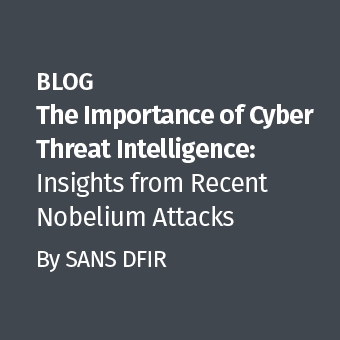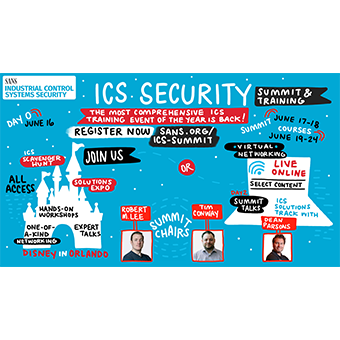The SANS Computer Forensics Heroes project is to help introduce you to people that have made a difference in information security and the digital forensic community. We believe there are a lot of people contributing to make computer forensics work, and we want to introduce them to you.
Interview with Michael Worman by Rob Lee
1. Tell us how you became interested in incident response or computer forensics.
My grandfather was the historian of the OCI (Office of Central Intelligence) and a 24-year veteran of the CIA, so maybe working in security intelligence was in my genes. As secretive men go, I didn't find this out until after his death in 2007, but oddly enough, I had already come as close as one can get to joining a national intelligence agency myself in 1999. Choosing instead to follow my heart and stay in Massachusetts with my future wife-to-be, I finished my engineering degree and then spent a short time working in hardware R&D for Data General (later EMC), a hacker's dream job. The long commute eventually wore on me, and I returned to UMass as a state employee, working with the small but proficient campus networking department that supported a good deal of the Five College System (UMass, Hampshire, Mount Holyoke, Smith, and Amherst College). This was around the turn of the millennium, and my networking job quickly turned into a heavy security role as the ever expanding high speed networks we supported became havens for online pranksters, stalkers, software pirates, and worse. Universities at the time were the largest (and hardest hit) target of the still young and immature malware threat. Well, computer security had a Cold War spy-thriller aspect to it (The Code Red Worm. Stacheldracht ("Barbed Wire")), and these elements were hard for me to resist so I plunged in headfirst by getting involved with SANS in 2000 (meeting for beer and pretzels with people like Stephen, Hal, Randy, Judy?all great people btw!). Almost immediately the training and education I began receiving unveiled and magnified hidden threats that were, at the time, mere toys. I saw Subseven, a prank Trojan for remote control, used to stalk a poor co-ed into fearing for her safety. There was a college dorm turned into a high tech studio for false documentation (and not just your average fake ID but also passports, work documentation, and fake diplomas). I began to experiment with tools like Snort (before Sourcefire) and nmap (back when it was still evil) and ever since that curtain was pulled back I don't think I've ever really looked away.
Since that time I've spent time as a forensics and incident response consultant for corporate executives, provided information to the FBI and Microsoft on suspected authors of several major Internet worms, sat next to one of the most damaging computer saboteurs in history, and hopefully, helped a lot of people along the way. I currently help to protect one of the world's largest communications networks.
2. What gives you the most satisfaction while working on a case?
Seeing people held accountable for their malicious actions involving computers. Not every catch is a high-tech, computer savvy individual. In my career I have helped to put at least a few sexual predators out of commission and while the forensic techniques involved were not very exciting, the thrill of doing something so meaningful can't quite be matched by any feat of technical wizardry.
3. What computer forensic techniques do you find the most useful?
I am old fashioned when it comes to our field, and having been taught by the first generation of infosec professionals (SANS and elsewhere) I am a purist when it comes to security matters, even more so when it comes to forensics. The most useful forensic technique ever taught to me was not a computer technique at all but Occam's Razor (thanks to Chris Misra, my first security mentor, for this gem). Albert Einstein, Leonardo Da Vinci, and Rube Goldberg all practiced and preached this concept, and in the digital realm with its infinite variations I think this is the tool that best helps me keep my wits about me. The enormous complexity of computers and data has a tendency to warp the human mind which works in quite different ways. Unless you want to start thinking and talking like a machine (which isn't very helpful), KISS.
4. What is your computer forensic tool of choice and why?
In terms of tools, I am again a big purist. The information security industry today is very different than it was ten years ago. There are so many advanced software and hardware products marketed to every niche of the IR/forensics field today, yet many of us keep our beat up class CD-ROMs with static netcat and dd binaries, don't we? I have used CD-ROMs like this in both intense corporate incidents as well as to help friends and neighbors wrench their personal PCs away from botnets in Eastern Europe. Call it the UNIX-style of security: I like to collect many small tools with explicit purposes instead of relying on one monolithic tool with less agility. And for a good IR/forensics professional, your brain is still the best tool you have; none of the IR/forensics tools we use run themselves, nor should they lest we forget how they work and thus, the core necessity of being able to explain them to juries and other decision-making bodies.
5. Tell us how a commercial tool helped solve a problem. What happened and how did it help?
Commercial tools provide "solutions" to businesspeople, and when it comes to big businesses the multiplicity of every little detail is often too much information for even the most skilled security professional. Thus, the best success I've had with commercial tools has been to help manage the logistical elements of the incident/investigation/intelligence cycle. Commercial investigative tools can help you try to uncover a fact here or there, but when it comes to proving security ROI (and it does exist, it's just not measured in dollars but in peace of mind) the commercial tools tend to get it right more than the free tools.
6. What area of digital forensics or incident response needs to be understood by every new investigator?
That to be fair, accurate, and successful in this field you must understand the computer, soup to nuts. I had the luxury of a good engineering education where I got a chance to design microprocessors, memory subsystems, operating systems, and so forth. You could say these were my anatomy lessons for a later career as digital coroner and arson investigator. Like medical forensics requires a strong stomach and the fearlessness to dive scalpel-first into fresh corpses (and I will be the first to say I do not have that skill), being a digital investigator requires the same fearlessness, only in the face of complex technology instead of the macabre. Both are similarly intimidating tasks that are similarly overcome through education, training, and experience.
7. What area of digital forensics or incident response has had the most exciting developments over the past few years?
Applied security intelligence, and by that I mean the ability to collect and utilize information to make decisions, be it in business or some other sector. There is a strong focus these days on applying business intelligence concepts in information security: know thyself, know thy enemy, and so forth. People like Lance Spitzner and Eric Cole have been writing about this stuff for years and now it appears the new generations of professionals are looking at the emerging landscape through the right lens: we sail in rough seas but with organization and planning, especially in proactive rather than reactive ways, we can defend against each surge like a strong levee. When we understand the true nature of a threat, we can prepare for it. When we underestimate, we are doomed to fail.
8. Where do you see yourself in the future?
I would like to be one of the first generation of PhDs in information security/assurance and use my experiences to teach others. My grandparents and many of my aunts and uncles have taught at the collegiate level and I think it is in my genes to want to share useful knowledge. Sadly, much as undergraduate studies in infosec were not available when I went away to college, and even with vast amounts of research into computer security, there is not yet a well established doctoral track in academia. Having recently completed my Master's with Norwich University, I feel as if I am on the right track to writing a textbook or two before I am too old to care about this stuff anymore.
8. What do you do in your free time when not working on computer forensics?
The joy and challenge of raising my sons beats anything I've ever done. I am also an amateur musician and tried various boring wood and brass instruments over the years before finally deciding to learn to play electric guitar?still working on that but once you have a practice routine down, it just takes time. Hopefully that applies to rearing kids as well.
